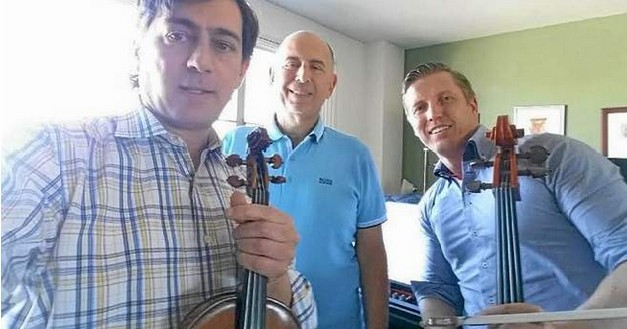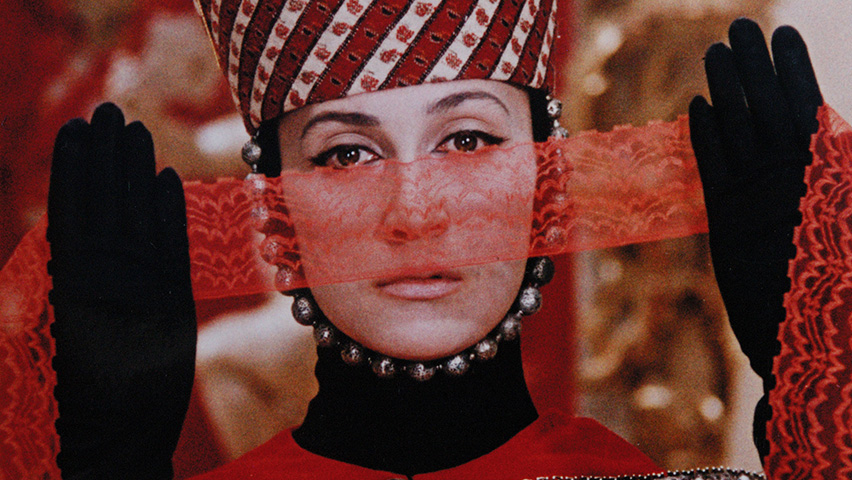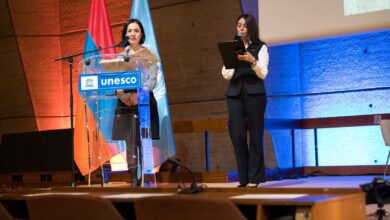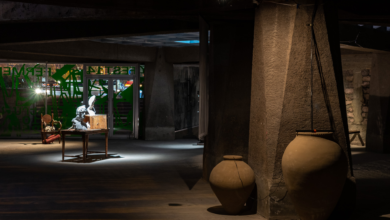Elite musicians unite for Armenian genocide memorial concert in Glendale

Three well-known local artists will make their first appearance as the Glendale Trio on March 28 at First Baptist Church of Glendale as part of the Glendale Philharmonic’s fifth annual Positive Motions series, San Gabriel Valley Tribute reports.
Violinist Roberto Cani, the Los Angeles Opera Orchestra concertmaster, will join pianist Armen Guzelimian and cellist Ruslan Biryukov, the series’ curator, in performances of Arno Babajanian’s Piano Trio in F-sharp minor and Shostakovich’s Piano Trio No. 2 in E minor.
The concert is being performed in memory of Armenian genocide victims as the 100th anniversary of the start of the genocide is April 24. Portions of the proceeds will be donated to the Armenian General Benevolent Union and the Western Diocese of the Armenian Church.
Guzelimian is well known for his work as a piano virtuoso, chamber musician, vocal coach and teacher. He appears often in local piano series, has played many times in the Los Angeles Philharmonic’s Green Umbrella series, and has performed around the world.
“Ruslan asked me last fall how I would like to join with Roberto and him for a recital,” says Guzelimian, whose brother, Ira, is provost and dean at The Juilliard School in New York City. “I, of course, had heard Roberto’s work with the L.A. Opera Orchestra and was delighted, particularly because of the pieces chosen and the fact that it would be near the centennial of the start of the Armenian genocide.”
The two pieces were written eight years apart, 1944 for the Shostakovich, 1952 for the Babajanian. “Both men were brilliant pianists,” explains Guzelimian. “They each liked to employ folk music in their pieces, both received the People’s Artist of the Soviet Union award, and both were influenced by Prokofiev’s music.
“Babajanian’s piece is a masterpiece of the piano trio literature,” continues Guzelimian. “He wrote in a grand romantic style, similar to Rachmaninoff. On the other hand, Shostakovich employed fascinating sound effects to create eerie moods in his trio.”
For Guzelimian and people of his generation, the Armenian genocide resonates deeply in their psyche and that’s particularly true in Glendale, which has a sizable population of people with Armenian heritage.
“My maternal grandmother was left an orphan by the genocide,” recalls Guzelimian. “She managed to escape and went first to Greece and then to Egypt. She had nothing — not even a birth certificate. When she died, we didn’t know for sure how old she was.”
Like Jews with younger generations and the Holocaust, Armenians struggle to keep the memory of the genocide alive in everyone, not just those with Armenian heritage.
“The feelings are different for those of us in the first and second generation,” he acknowledges. “The genocide is taught as historical fact now and there are, of course, plenty of pictures, chronicles and world news reports from the periods (1915-1918 and 1920-1923). But the failure of Turkey to acknowledge the truth of what happened is still a wound.”
Although the concert’s dedication is significant, Guzelimian cautions, “I don’t want people to be scared away from this concert thinking it will be a sad, somber occasion. This is great music that would stand on its own.”








